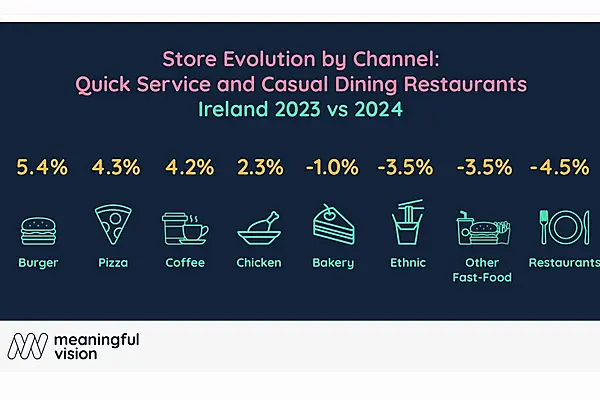At 7 am on a recent morning, Simon Collins was at his office in New York making a video call to China. The fashion consultant was about to launch into his plans for an upcoming conference he’s organizing before his overseas colleague interrupted: “Are you in your grandmother’s dining room?”
He was actually at Public, a dimly lit restaurant with dark oak tables and vintage décor located in New York City’s trendy Nolita neighborhood. The Michelin star eatery undergoes a transformation each morning into a co-working space for freelancers and other professionals. A network of five such restaurant-office hybrids is run by a local startup called Spacious.com, which is finding a niche among people looking for a place to work that’s cheaper than WeWork but quieter and more reliable than a Starbucks.
Spacious is one of several new businesses with an unusual twist on co-working. The model of converting dining rooms or bars into shared offices is attractive to restaurant owners because it offers a new source of revenue during the work day, when their spaces are usually left dormant. It’s especially appealing to the food-service industry, which has seen its already-low margins squeezed. “Walking by a coffee shop and seeing everybody piled on top of each other, and seeing a beautiful empty restaurant next door—it just seemed to be a natural fit,” said Preston Pesek, co-founder and chief executive officer of Spacious.
Co-working spaces, where people rent desks and offices alongside other freelance or satellite workers, have become a global sensation, led by WeWork Cos. The New York-based company was valued at more than $17 billion last month after an investment from SoftBank Group Corp. WeWork provides members with free snacks and access to in-office beer kegs. It has 162 office locations in 41 cities around the world.
WeWork’s hometown is one of the world’s co-working capitals. Commercial real estate devoted to co-working in New York City has grown fivefold in the past five years, according to Jonathan Mazur, managing director at real estate firm Newmark Grubb Knight Frank. The city, with its high concentration of restaurants and bars, offers plenty of options for Spacious and its rivals, such as WorkEatPlay and KettleSpace.
But similar businesses are starting up in Austin, Texas, and Tel Aviv. They typically don’t offer as many perks as WeWork but provide members with speedy Wi-Fi, printers, office supplies and coffee. Subscriptions range from $95 to $110, which is about half the cost of a desk at WeWork.
Daniel Rubin, CEO of Israel’s Pub Hub, said he’s opened one location and is scouting more than a dozen bars in the country’s tech hub of Tel Aviv. But he said finding one that can make itself look presentable to working professionals every morning is a challenge: “Not every bar is great for co-working.”
Working someplace with a fully stocked bar has its perks. Shaina Forman, a 28-year-old brand strategist, shuts her laptop at 5 p.m. when DBGB Kitchen and Bar on Manhattan’s Lower East Side opens to the public. Then she’ll sometimes partake in the $1 oysters and drink specials. “We get a text at the end of the day saying it’s time for happy hour,” she said.
Because Spacious uses mostly high-end restaurants, it doesn’t have to worry about cleaning up a mess from the night before. Cheryl Clements, who founded and runs a crowdfunding website called PieShell that’s aimed at food and beverage entrepreneurs, said Spacious allows her to get a rare taste of fine dining, even if it’s during off-hours. She often works from La Sirena in Chelsea, which is owned by celebrity chef Mario Batali. “You walk out of here and go to the washroom, and the orange Croc wonder is standing there doing a commercial, and you’re like, ‘Oh, yeah. Hi!’” Clements said.
Collins, the fashion consultant, also likes the upscale digs, in spite of the mockery from his Chinese colleague. As Collins told him over video chat recently, the vibe helps him portray a certain status to clients. “This is a really cool restaurant downtown that people struggle to get into, and we get in early,” he said. “I filmed an interview with a Chinese network in the wine room at Public. It’s a long, beautiful room filled with wine.”
But due to the high turnover in the restaurant industry, your favorite location may not stick around forever. Collins was bummed to learn recently that Public lost its lease and will shut down in June. He’ll relocate to La Sirena or another Spacious location, he said: “Always sad to see a good restaurant go though.”
News by Bloomberg, edited by Hospitality Ireland









